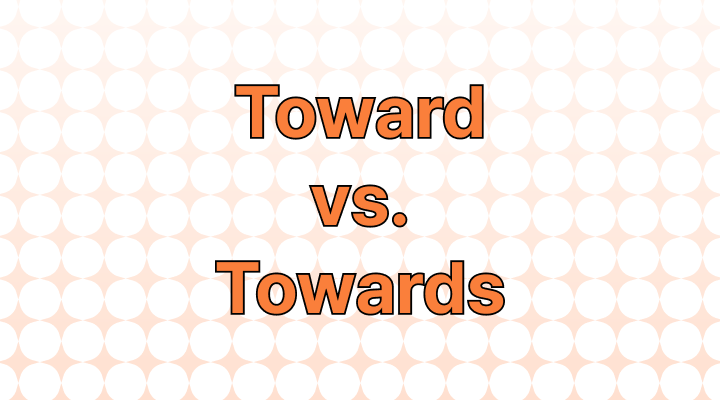Both toward and towards are prepositions used to indicate direction or movement in relation to a specific point or goal.
Subtle distinctions often hold the key to precision in communication. The words toward and towards exemplify such a nuanced difference, reflecting regional preferences while serving the same purpose.
How to use toward/s in a sentence
Below is a sentence using toward/s:
- He walked toward/s the city center.
In this sentence, toward/s is a preposition that indicates the direction of the subject's movement. It shows that the subject (He) is moving in the direction of the city center. Toward/s is used to describe the orientation or destination of an action, often denoting movement or progression in a particular direction. It helps specify where something or someone is headed or directed.
How are toward vs. towards different?
The primary difference lies in their usage across regions. Toward is commonly favored in American English, while towards finds its home in British English. Despite this, it's essential to note that many speakers from both sides of the Atlantic use both variants interchangeably, and the choice often depends on personal preference.
Toward is the original form, and towards emerged later as an extension with the addition of the "-s" suffix. Interestingly, towards was initially more prevalent in Middle English but gradually declined in usage over the centuries. In the United Kingdom, it persisted and is still widely employed today. On the other hand, American English embraced the simpler form toward and made it the standard.
More example sentences:
- She walked toward the horizon, her eyes fixed on the setting sun.
- The project is a significant step toward achieving our long-term goals.
- The river flows gently towards the east, through valleys and plains.
- He took a step toward the door, ready to leave the room.
- The research points towards a possible breakthrough in medical science.
- They made progress toward the summit, facing challenging terrain.
- The compass needle pointed toward the north, guiding their way.
- Our efforts are directed towards creating a better future for all.
- The arrow flew toward the target, hitting the bullseye with precision.
- The path leads towards a serene lakeside retreat, hidden in the woods.
If you still are unsure about which to use, try out Engram where you can submit your English sentences to get immediate feedback and suggestions based on how native English speakers write.

Reference:














